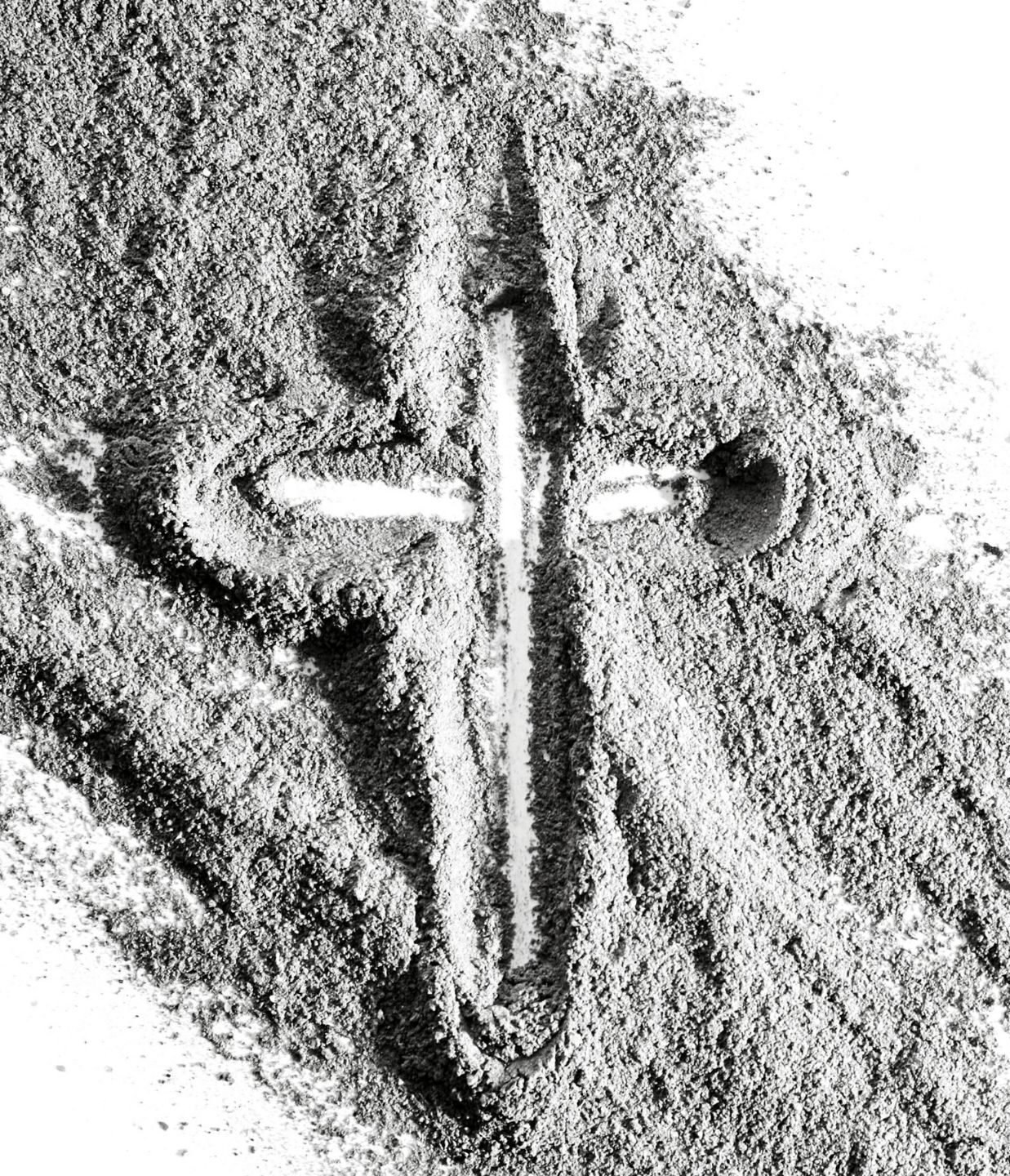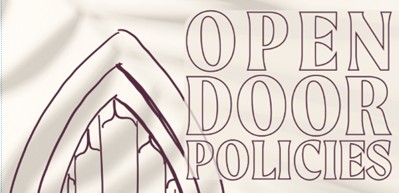Watch the livestream beginning at 9a.m. on Sunday. After the livestream is finished, the video will be available to watch at any time.
Music:
- Hymn: CW 818 “Holy, Holy, Holy! Lord God Almighty”
- Hymn: CW 703 “I Heard the Voice of Jesus Say”
- Hymn: CW 913 “Come Away from Rush and Hurry”
- Hymn: CW 927 “Lord, Dismiss Us with Your Blessing”
Pentecost 2 June 2, 2024
Colossians 2:13-17 Pastor Wolfe
Christ Cancelled the Code
1) Christ Laid the Law to Rest
2) Christians Rest from the Law in Christ
God tells us, “Always be prepared to give the reason for the hope that you have.” So, take a second gather your thoughts, and tell the person next to you what Jesus has done for you. Go ahead, I want you to actually do it.
This is a sermon, not a Bible study so I don’t get to walk around and listen to everybody’s individual answers, but I hope you talked about forgiveness and heaven. About Jesus. The cross. And all we really need to share is a simple faith that Jesus did everything for us.
The problem comes when people limit themselves not just to simple faith, but to simple understanding. God wants our faith, our trust in him, to be simple, like that of a child. But he wants our knowledge and understanding of him to be full. That means learning and studying and praying and thinking. It means knowing what Jesus did, beyond just a toddler’s knowledge that Jesus died on the cross for us. Jesus didn’t just die for you – he lived for you too. And it’s that other side of what Jesus does for us that is the focus of our sermon today. Christ Cancelled the Code. He put the law to rest for us, and now Christians rest from the law in him.
Our text starts with a familiar description of Christians, and one maybe not so familiar. Paul says, “When we were dead in our sins…God made us alive in Christ.” We know this picture. This idea of new life given to dead sinners by God’s grace alone was a big part of our service last week. This is the new birth that Jesus told Nicodemus about. We must be born again to enter the kingdom of God. Because our natural births only brought us into a world of death and sin, God must give us a new birth in order for us to be saved. In other words, we can’t save ourselves – God had to do it for us in Christ. In the verse just before this, Paul said that we are connected to Christ our Savior, “having been buried with him in baptism and raised with him through faith.” You know full well that it’s only because of Jesus that we are saved. Only because in him, as our text says, “God forgave us all our sins.”
What is maybe a little unfamiliar though, is the description of us as being “uncircumcised in our flesh.” Now, to a Jew of Jesus’ time, or any time since Abraham, being circumcised (or for women, being a member of a household led by a circumcised man) was a visible sign of being part of God’s covenant. God had told Abraham to be circumcised as a sign of his promise to send a Savior and make his people great. For the next 2000 years until Christ came, every Jewish boy on his 8th day of life was circumcised (or was supposed to be) as a sign of his connection to that promise of God. Being uncircumcised meant being separate from that promise. Separate from God’s people. And that is just what we are by flesh. By nature. Paul’s description may seem odd to us, but it made perfect sense to the Jews who knew that particular law of God.
With that law, and many others, Paul frames the forgiveness we have from God in terms of being freed from a debt or obligation. He says in verses 13-14: “He forgave us all our sins, having canceled the charge of our legal indebtedness, which stood against us and condemned us; he has taken it away, nailing it to the cross.” One of the Bible’s basic teachings is the difference between God’s Law and his Gospel. The law is the part of God’s message in which he gives us his commands and then measures us up against them. God tells us in his word that only those who keep the law perfectly can be saved by it. But because all fall short of God’s glory, then all are condemned by the law. In other words, no one can be saved because no one can do everything God wants. Look at your life and you’ll see for yourself how you’ve fallen short of God’s perfect requirement.
Our failure to follow the law is the “charge of legal indebtedness” Paul is referring to here. The word is used in legal terms to describe basically a promissory note. A written, legal record of a debt that you owe someone. Maybe the most familiar to us would be a mortgage statement. And on our records of debt would be written every time that we’ve broken God’s law. Every time we harbored selfish or lustful thoughts. Every time we failed to respect our God or the government he blesses us with for our good. Every word spoken in anger or without love. It’s a record of debt a mile long and a thousand miles deep. Living under regular financial debt can be crushing. Our “sin debt” to God? Well that’s a burden that destroys us. A weight we can never carry. A call for work that we could never rest from. Under the law, there will never be rest to appease a perfect and holy God.
But God doesn’t save us by the law. He puts the law to rest in Christ. God forgives our sins by sending Christ to cancel the debt for us. The Greek is forceful here. Christ wipes out our debt. He erases it. He obliterates it. It’s gone. Jesus took our sins and carried them onto the cross. Nailed them to it, Paul says. This is the basis for our tradition here of putting nails into the cross in the church entry on Good Friday. But if you’ve paid attention, those nails are gone on Easter Sunday. Christ went to the cross to wipe out our debt to God. And when we see him die, we see our sins die along with him. Paul doesn’t talk about the cross as a sad thing here but as a sign of victory. Look at verse 15. “And having disarmed the powers and authorities, he made a public spectacle of them, triumphing over them by the cross.” At the cross Jesus defeated Satan. There Jesus cancelled the code – he destroyed the debt. We no longer need to fear God’s punishment. We no longer need to worry about what will happen to us for sin. We no longer have the weight of work righteousness on our shoulders. On the cross Jesus laid the law to rest.
And with the law laid to rest by Christ, we now rest from the law in Christ. There are no laws that bind us because Christ has fulfilled all laws for us. We don’t speak of God’s laws as obligations or duties for us. That’s the reason we reject the Boy Scout Oath and their claim of a duty to God. Why we don’t have to follow the Old Testament sacrifices or dietary rules. But living in Christ’s freedom is harder than you might guess. The law is familiar. In some ways, the law is easier.
That’s what the Israelites and the Pharisees found. God had given specific commands to his people in the Old Testament to set them apart from the world and to show them some truths about the coming Messiah. We already talked about circumcision. There were also four festivals a year for which the Jews had to travel to Jerusalem. There were special things to eat and drink. Lots of laws, but none of them more serious than the Sabbath.
On the seventh day of creation, God rested and declared that day holy. When he established his special laws for his Old Testament people God established a weekly Sabbath rest for them. Every Saturday, the people were not to work. Food was supposed to be prepared the day before. Fields were not supposed to be harvested. Travel was supposed to be limited. And people were to spend this day of rest in worship and prayer before God.
Over time, though, some people forgot about the prayer and worship that were the heart of the Sabbath. They became focused on the laws. God’s command not to harvest became twisted into accusations by the Pharisees when the disciples took a few heads of grain to eat. (Which was legal according to Jewish law by the way.) They accused Jesus of Sabbath breaking when he healed the sick or other times cast out demons. They had forgotten that God commanded the Sabbath to help people worship, not to add laws to obey.
But as he said, Jesus is Lord of the Sabbath. And all those special laws had an expiration date. God says here, “Let no one judge you by what you eat or drink, or with regard to a religious festival, a New Moon celebration or a Sabbath day. These are a shadow of the things that were to come; the reality, however, is found in Christ.” There is no judgment for us in these Old Testament laws because they were just shadows pointing to a reality that we now have. Christ, who kept the law for us. And that freedom means everything.
Living under the law is miserable. Just ask a person who tried to save themselves under it. “Have I done enough? Did I do it right? Have I made myself pleasing to God?” The questions never end for those living under law. But God has set us free in Christ. We are free from the depressing life of trying to do enough good deeds to make God happy. We don’t look to the shadow of the law – we have the reality of Christ. And in him all laws are fulfilled. All obligations have been met. There is nothing a Christian has to do. We can eat and drink what we want. We can worship whenever we choose. In Christ, we are free from the obligation to save ourselves and instead find rest in knowing Christ saved us himself. It’s almost too good to be true. Another “top-down” truth that only God could give.
Yes, we are saved not by the law, but by Christ. His cross. His life. His payment for our debt. That means we don’t have to do anything. You don’t have to – you can’t – do anything to make God happier with you. But hold on. We don’t have to do anything to save ourselves, but if we truly know what Christ has done for us, then we can’t help but want to serve God. This is why we worship, we serve, we sacrifice, we give. The truth of Christ has set us free. Brothers and sisters in the family of God, use that freedom to sing and serve and share our Savior. Amen.

